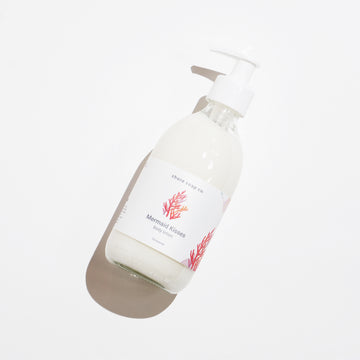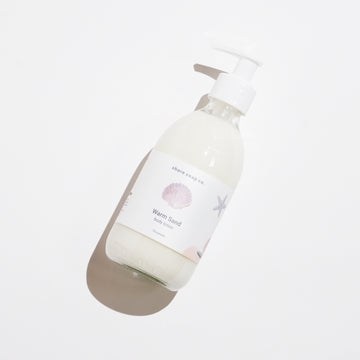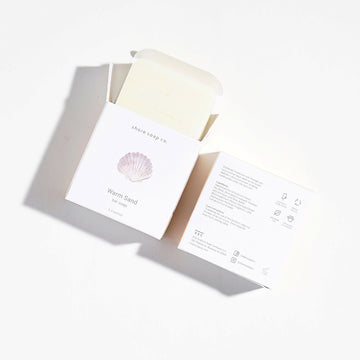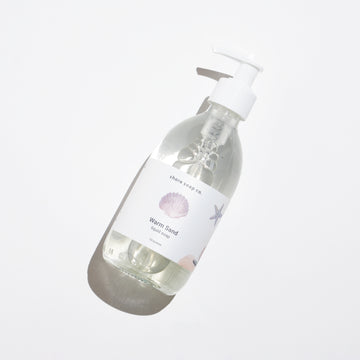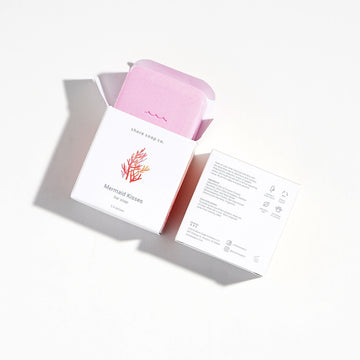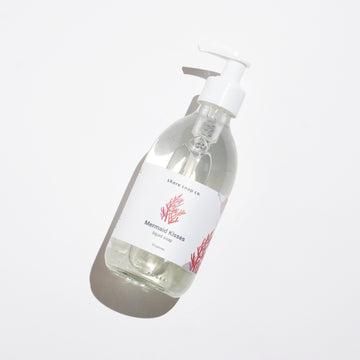#cleantheshore
8 million metric tons of plastic enter our oceans each year.
Each year, around eight million metric tons of plastic waste invade our oceans. Reports show that most plastic packaging is only used once; 95% of the value of plastic packaging material, worth $80 billion-$120 billion annually, is lost to the economy after a short first use. The New Plastics Economy, an initiative led by the Ellen MacArthur Foundation (in collaboration with a broad group of leading companies, cities, philanthropists, policymakers, academics, students, NGOs, and citizens), is rethinking and redesigning the future of plastics, starting with the packaging. This ambitious three-year initiative provides a vision of a global economy in which plastics never become waste and outlines concrete steps towards achieving the systemic shift needed.
Every minute, the equivalent of 1 garbage truck of plastic is dumped into our oceans.
Studies undertaken by the World Economic Forum, the Ellen MacArthur Foundation and McKinsey & Company have showed the scale of the breakdown in the global plastic system. Of the 78 million tons of plastic packaging being produced annually, a full 32% of the plastic is left to flow into our oceans, the equivalent of one garbage truck of plastic being dumped into the ocean each minute.
At current rates, by 2050 there will be more plastic than fish in the world’s oceans.
According to reports, if we keep producing (and failing to properly dispose of) plastic at predicted rates, plastic in the ocean will outweigh fish by 2050. The World Economic Forum has reported that the worldwide uses of plastic has increased 20-fold in the past 50 years, and is expected to double again in the next 20 years. By 2050, we’ll be producing more than three times as much plastic as we did in 2014.
Plastic has devastating effects on marine animals.
There is a massive amount of plastic polluting our oceans. It coagulates into great floating “garbage patches” that wash up on public beaches and remote islands, toss about in the waves and travel incredible distances before arriving back on land. Studies show that plastic waste ends up in the stomachs of more than half of the world’s sea turtles and nearly all marine birds. Estimates suggest that at least 100 million marine mammals are killed each year from plastic.
Micro plastics are entering our food chain.
When plastics end up in the ocean, they become a sponge for chemicals that are already out there. Much of these plastics are not just floating on the surface, many are broken down into microplastic particles. These microplastics become coated in bacteria and algae, resulting in fish mistaking them for a high energy meal, literally stuffing themselves with chemically absorbed plastics. While most of the actual plastic bits end up in the guts of the fish, once the plastic interacts with the fish’s stomach, chemicals are released and transferred into the bloodstream and flesh; thus edible parts of the fish that end up on our plates. These chemicals can be harmful to humans in accumulated concentrations. In simplest terms: plastic absorbs chemicals, fish eats plastic, human eats fish.
What we can do.
Proper Recycling
To help keep plastic out of our oceans and to reduce the amount of new plastic getting in, always recycle single-use plastics and other recyclable plastics. If you are unsure on how to properly recycle a specific item or to locate a recycling center near you, visit earth911.com.
Reduce Single-use Plastics
Reduce your use of single-use plastics (plastic shopping bags, water bottles, straws, utensils, dry cleaning bags, food storage bags and containers) and replace them with reusable items. For example, bring reusable shopping bags with you when you go to the grocery store; swap out plastic water bottles with a stainless steel bottle; replace plastic straws with stainless steel, glass or silicone ones; opt for no plastic bag when picking up your dry cleaning; use glass or stainless steel food containers. You can also make a difference by supporting bans on single-use plastics in your community.
Avoid Microbeads
Avoid products that contain microbeads, tiny plastic particles that are found in some face scrubs, toothpastes and body washes. They easily enter our waterways and oceans through our sewer systems and have become a growing source of ocean plastic pollution in recent years. To avoid products that contain microbeads, look for “polythelene” and “polypropylene” on the ingredient labels.
Everything Helps
Participate in a beach cleanup. This is one of the most direct and rewarding ways to fight ocean plastic pollution and it can be done on your own, with your family and friends or by joining a local organization’s cleanup event.
Stay Informed
Stay informed on plastic pollution related issues and spread the word. For example, host a viewing party for a documentary on plastic pollution (such as Garbage Island, A Plastic Ocean, Plasticized, Addicted to Plastic, Plastic Paradise or Bag It) to help make others aware of the problem.
Donate & Support
Support organizations that address plastic pollution. Many non-profit organizations are working to tackle the problem of ocean plastic pollution, including 5 Gyres, Agalita, Oceanic Society, Plastic Pollution Coalition, Plastic Soup Foundation, and others. These organizations rely on donations to continue their important work, even a small donation can make a big difference!
Learn more, Donate & Support.
5 Gyres
"Our mission is to empower action against the global health crisis of plastic pollution through science, art, education, and adventure. Our vision is a world free of plastic pollution!"
Oceanic Society
"Our mission is to conserve marine wildlife and habitats by deepening the connections between people and nature."
Plastic Pollution Coalition
"Plastic Pollution Coalition is a growing global alliance of organizations, businesses, and thought leaders working toward a world free of plastic pollution and its toxic impact on humans, animals, and the environment."
Plastic Soup Foundation
"The Plastic Soup Foundation wants to put an end to the increasing pollution of the seas and oceans with plastics. We want to prevent even more plastics entering the sea in the future."
Agalita
"Algalita is a nonprofit organization committed to solving the plastic pollution crisis in our oceans through research and education."
